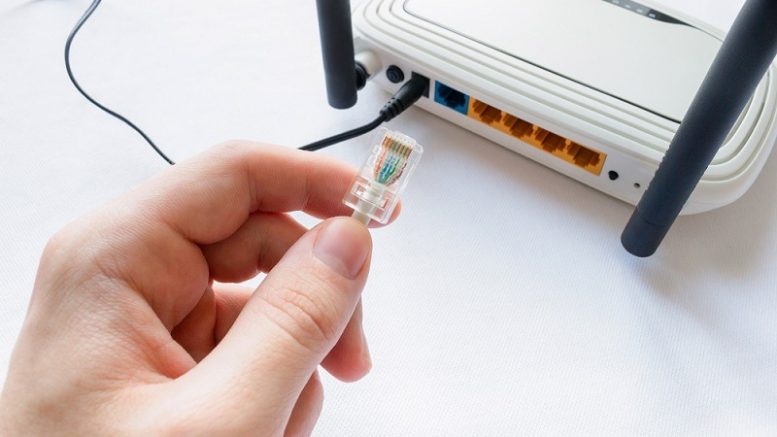Most broadband internet subscribers either rent or buy a modem and a router. Renting tends to be the more popular option among many subscribers. But is it really worth the rental expense in the long run? Last year, I found myself asking the same question, considering rising Spectrum internet prices. And it’s not just me! ISPs everywhere have raised prices, causing many subscribers to ask this question.
Buying vs Renting a Router and Modem
You don’t always have to rent out a modem and router from your internet service provider. The thing is, ISPs have hiked up their rental fees by more than 30% over the past few years. This has prompted many internet subscribers to skip the monthly rental and buy their own modems and routers. However, you can buy a good router from Spectrum services at cheap and affordable prices
An average modem and router costs around $150. This is a price your equipment can pay off within a year. After that, as long as your equipment continues to work, you save on the monthly rental. Sounds good, doesn’t it? There is a problem, however.
Buying your own modem and router may not always be the correct decision. A number of factors can cause installing and maintaining such equipment more expensive than renting it. It may also consume more time than you’re willing to spend. Let this blog help you make the “buy or rent?” decision by covering the following areas:
- Modems and Routers Explained
- Why ISPs Rent Equipment
- The Pros of Renting
- The Cons of Renting
- The Pros of Buying
- The Cons of Renting
- Conclusion – Buy or Rent?
Let’s take a closer look at them below.
Modems and Routers Explained
A modem and a router are two separate pieces of equipment, but can often be found as a single unit called a wireless gateway. You need both the router and the modem to make a Wi-Fi network work in your home. While you can always get a wireless gateway for your home, having a separate modem and router allow you more networking options in the future.
A modem is responsible for translating the internet signal from your coaxial cable into something your Wi-Fi devices can understand. The router broadcasts the internet signal throughout your home by connecting to your router via an Ethernet cable.
Why ISPs Rent Equipment
ISPs rent out modems and routers to their subscribers for three simple reasons. The first one is that it streamlines connectivity for subscribers. Most subscribers are more concerned with how quickly their home can get connected to the internet. They don’t want to spend time browsing routers and modems, so ISPs offer convenient equipment rental.
The second and more obvious reason is profit. ISPs make a killing off of renting out modems and routers. Of course, they have to deal with the additional costs of the equipment and technicians to install them. But in the long run, ISPs generate revenue of around $300 million every quarter through renting out equipment.
The final reason is that rentals prevent subscribers from switching to another ISP. This is very similar to the contract you sign with your cellular carrier. Both aim to make it difficult for you to switch your provider. The result is that many people choose to stay with their current provider rather than going through the hassle of switching.
The Pros of Renting
There are several advantages to renting a router and modem from your internet service provider. Of course, the specifics of your rental agreement will differ from provider to provider. But for the most part you can expect:
- Free 24/7 technical support for your router and modem.
- Professional installation of the equipment.
- Free-of-cost replacements for outdated equipment.
The Cons of Renting
Renting a modem and router has its advantages. But it also comes with several disadvantages that you need to consider. These include the following:
- Rental prices are not static.
- Equipment tends to be lower-end.
- Rentals cost you more in the long-run.
The Pros of Buying
There is always the option to consider buying your own equipment if renting it does not seem appealing. Buying your own modem and router carries several incentives. These may include:
- Saving more money in the long-run.
- Switching providers becomes easier.
- Freedom to buy high-end equipment.
The Cons of Buying
Before you jump to conclusions and buy your own modem and router, consider this section. Buying your own equipment comes with several disadvantages. Be prepared for the following:
- Higher upfront costs than renting equipment.
- You will have to install it yourself.
- No technical support from your ISP.
Conclusion – Buy or Rent?
There is no easy answer to this question. Whether you should buy or rent a router and modem depends on the specifics of your circumstances. Consider the following points:
- Can I install my router without a professional?
- Does my current equipment not perform well enough?
- Do I have money to spend on new equipment?
- Does my ISP allow subscribers to buy and use their own equipment?
- Are there other providers around, like Spectrum internet in my area?
If the answers to the above questions are yes, then you should consider purchasing equipment of your own.



Be the first to comment on "Should I Buy or Rent? – Routers and Modems Explained"